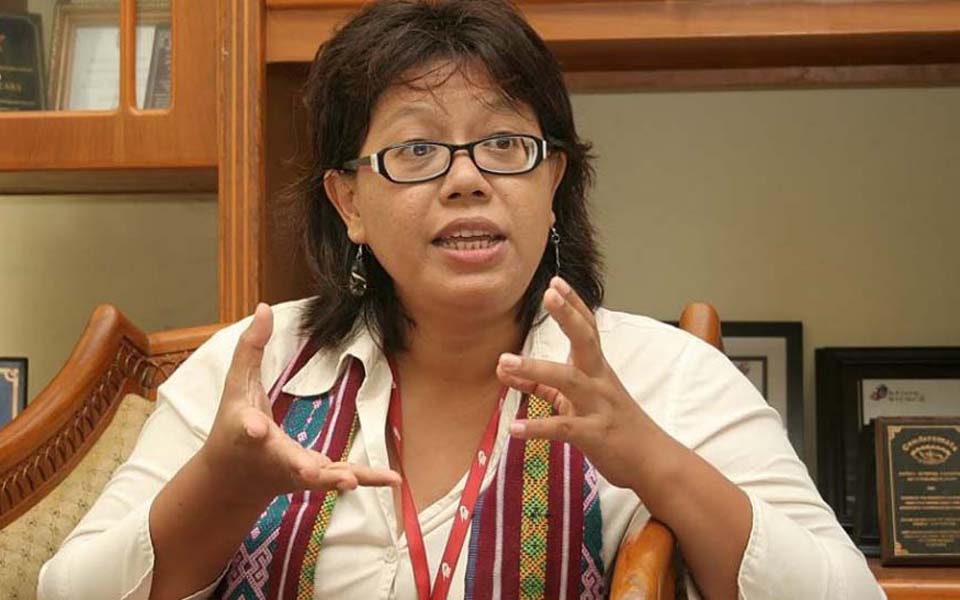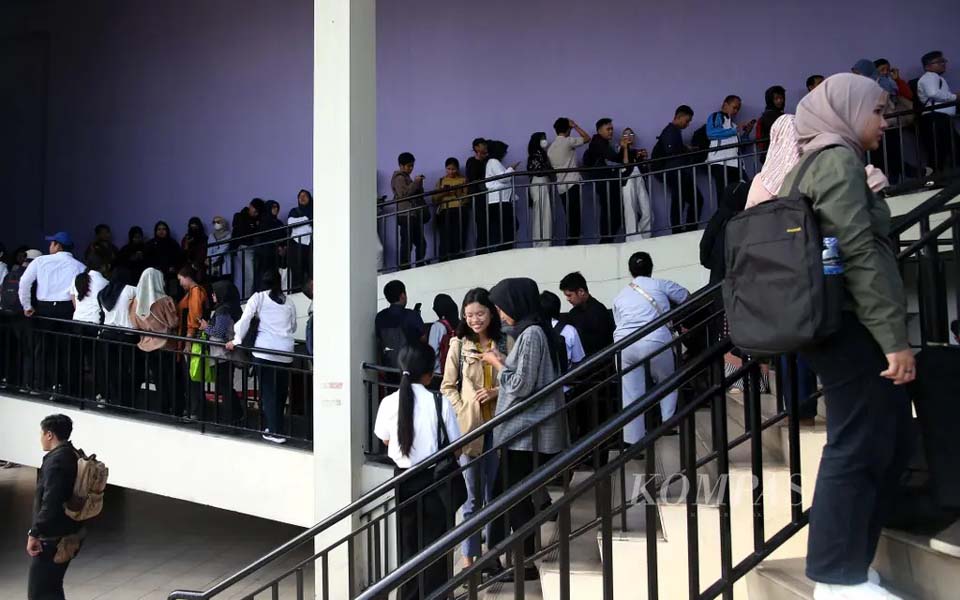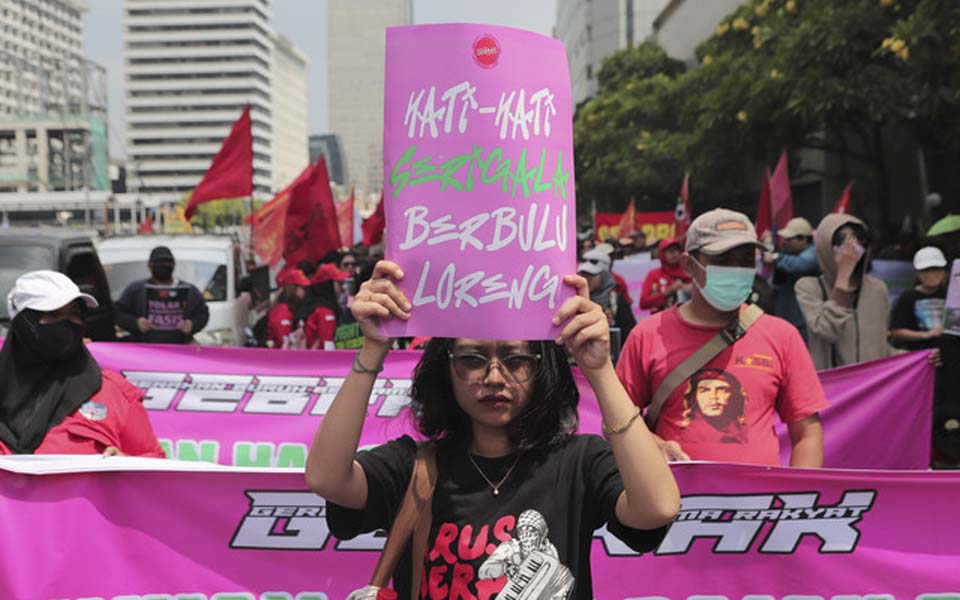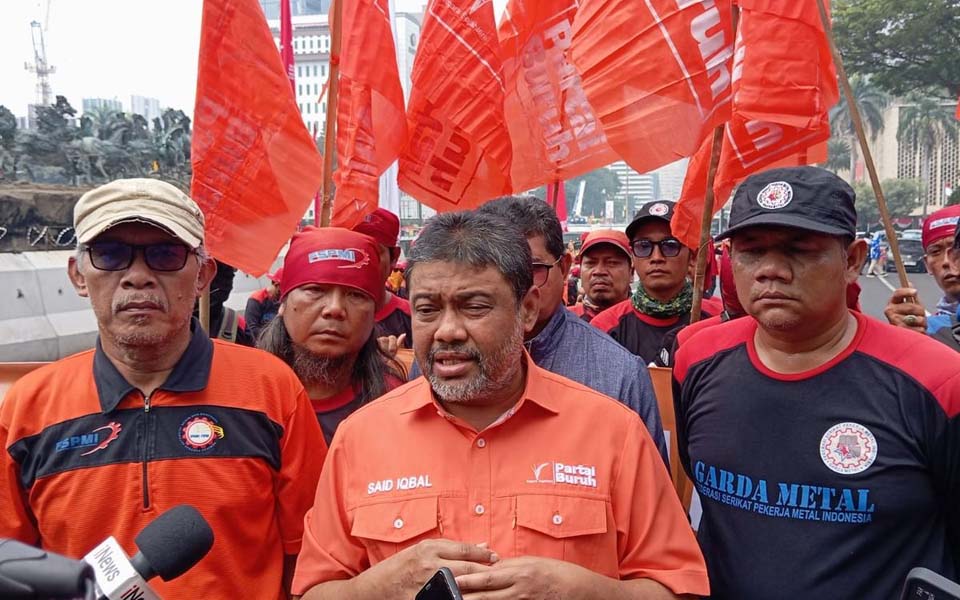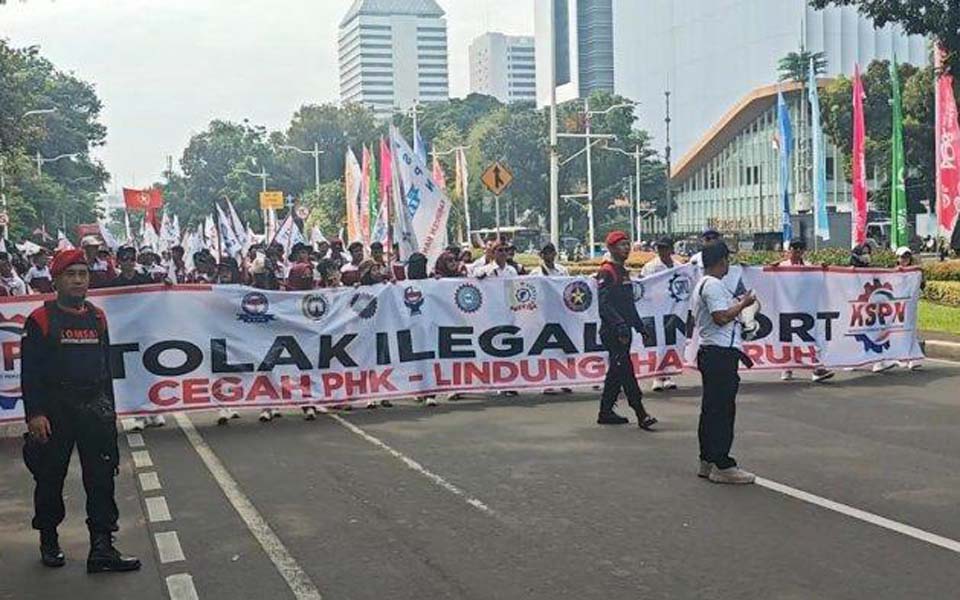Jakarta – Former labour activist Dita Indah Sari says that a mature labour movement must strengthen its “negotiating muscles” or capacity to negotiate with individual companies rather then organise big demonstrations to achieve wage settlements.
“If [they] want to increase wages significantly workers must strengthen their ‘negotiating muscles’ rather than their ‘demonstrating muscles’. So that they deal directly with a company”, Sari said in Jakarta on Wednesday October 30.
Because of this therefore, according to Sari, now is the time for move towards strengthening dialogue and negotiating abilities with companies, as well as increasing the strength of trade unions.
“Trade unions must play a greater role, because now is the time for a momentum to strengthen the approach of dialogue and negotiations”, she said.
An approach using dialogue and negotiations between workers and companies, continued Sari, would provide an opportunity for individual employers who have different capacities to settle wage increases.
“Because each company’s capacity [to pay wages] is not the same. For example a company with a workforce of 50 or 100 people, is of course different from one that has 1,000 workers”, she said.
Because of this therefore, Sari suggesting that it would be best if workers demand a standard wage that is not too high, is realistic and in line with a company’s capacity.
“Because in actual fact the minimum wage should only apply to new workers, while those who’s terms of employment have already reached two years or more it is appropriate to make demands through the channel of direct negotiations with a company”, she said.
The National Labour Movement Consolidation [a united labour front established by trade unions in early October – JB] plans to hold a national strike on October 31 and November 1. The national strike will be preceded by labour actions throughout Indonesia on October 28-30.
The national strike is demanding, among other things, an end to the politics of low wages and the abolition of outsourcing or contract labour. In Jakarta province, workers are demanding that the minimum provincial wage (UMP) be set at 3.7 million rupiah per month.
According to Confederation of Indonesian Trade Unions (KSPI) Secretary General Muhammad Rusdi, workers are fighting to obtain a minimum wage of 3.7 million rupiah per month so that they can enjoy a reasonable standard of living, can own a home and pay for their children to go to school (Antara)
[Dita Ingatkan Buruh Perlu Otot Negosiasi – Metrotvnews.com. Rabu, 30 Oktober 2013. Translated by James Balowski.]





